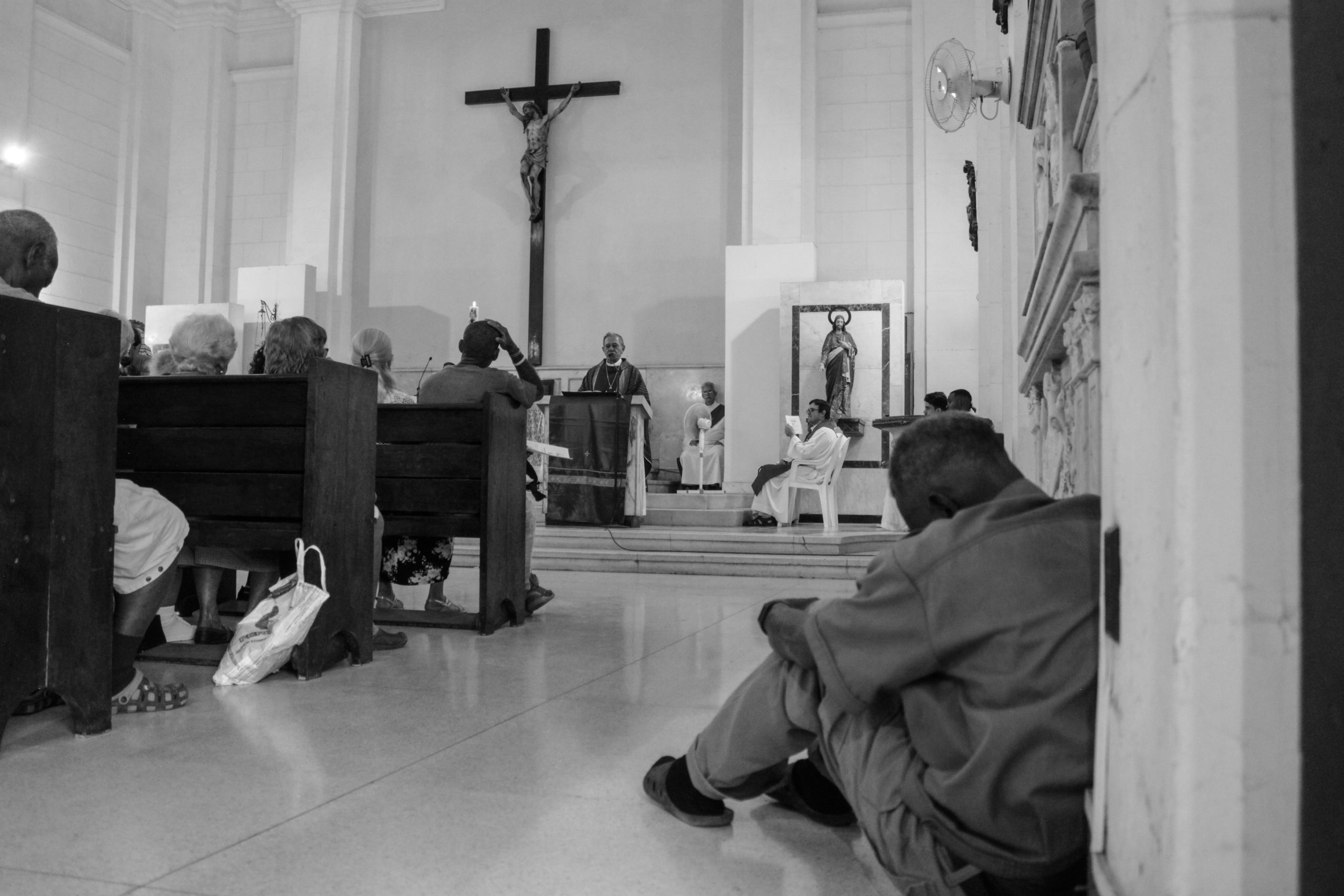World Day of the Poor takes place on Sunday November 19 and aims to raise awareness about people living in poverty, writes MARGARET CLARKE.
According to the World Bank, the coronavirus pandemic in 2020 pushed between 88m and 115m people into poverty, “with the majority of the new extreme poor being found in South Asian and Sub-Saharan countries where poverty rates are already high”.
This year, the number could have increased to 143m to 163m, with deepening inequalities between the global north and global south.
The world summit called on governments to address the root causes of poverty and for the poor to have access to productive resources, including credit, education, ethical, social, political and economic imperatives of mankind.
Humanity is at a crossroads. Human choices, shaped by values and institutions, have given rise to the interconnected planetary and social imbalances we face.
Beyond income, people experience poverty in multiple and simultaneous ways in their daily lives. One in three children globally missed out on remote learning when Covid lockdowns hit schools.
The Multidimensional Poverty Index shows that approximately two-thirds of people who are multidimensionally poor live in households where no woman or girl has completed at least six years of schooling.
Instability and conflict threaten to push millions into poverty. Afghanistan could face universal poverty, with 97 per cent of the population living below the poverty line.
It is estimated that by 2030 up to two-thirds of the global extreme poor will be living in fragile and conflict-affected situations. The resulting poverty from the humanitarian crisis in Israel and Palestine will be unprecedented.
Eradicating poverty is not a task of charity, it’s an act of justice, and the key to unlocking enormous human potential.
Nearly half of the world’s population lives in poverty and lack of food and clean water is killing thousands every single day of the year.
Together, we can feed the hungry, wipe out disease and give everyone in the world a chance to prosper and live a productive and rich life.
The UN Global Goals 2030 Agenda targets the elimination poverty by actioning 17 Sustainable Development Goals (SDGs). The first goal, SDG1, is to end poverty in all its forms.
To achieve the target of eradicating poverty by 2030 (2030 Agenda) only 7 years remain. The whole world is seriously below target with the impact of war, climate change, the covid pandemic, the global economy and cost of living crisis. As progress is stilted, the needs of the poor accelerate.
Everyone can help to make sure that we progress this global goal by becoming aware of the seven targets listed under SDG1 to create action to end poverty in all its forms.
The targets are:
1.1 Eradicate extreme poverty for all people everywhere, currently measured as people living on less than $1.25 a day.
1.2 Reduce poverty by at least 50 per cent in all dimensions according to national definitions.
1.3 Implement social protection systems by 2030.
1.4 Equal rights to ownership, basic services, technology and economic resources.
1.5 Build resilience to environmental, economic and social disasters.
1.6 Mobilise resources to implement policies to end poverty.
1.7 Create sound policy frameworks at the national, regional and international levels, based on pro-poor and gender-sensitive development strategies, to support accelerated investment in poverty eradication actions.
These targets may not be within the reach of many of us, but each action you take at whatever level builds up collectively to support the 2030 agenda.
Advocacy is important – be the voice for those who cannot speak. Campaigning and lobbying your MP, local government and the Select Committee is essential to initiate change.
We can also act practically and locally. Could you support a food bank, share a meal or invite a family as a special treat? Think global and act local!
According to the UN Sustainable Development Goal 2023 Report, by 2030 if current trends continue, 575m people will still be living in extreme poverty, and only a third of countries will have halved their national poverty levels.
Many of the worlds vulnerable population remain uncovered by social protection. There is positive change in some areas, in response to the cost-of-living crisis 105 countries announced almost 350 social protection measures in the last 12 months and worldwide, countries have increased government spending on essential services, education, health and social protection from 47 per cent in 2015 to 53 per cent in 2021.
The United Nations Development Programme (UNDP) Strategic Plan (2022-2025) boldly pledges to lift 100m people out of multidimensional poverty. This is anticipated by expanding access to renewable energy, creating green jobs and livelihoods while driving down carbon emissions, thereby making an ambitious commitment to work with partners to provide 500m additional people with access to clean, affordable energy by 2025.
These contributions represent a fraction of the UN’s efforts across the globe to help communities to build forward better from the devastating pandemic, helping to end poverty and shaping a future that will balance the needs of both people and planet.

